SUMMARY
This is AI generated summarization, which may have errors. For context, always refer to the full article.
![[OPINION] Discovering my gender fluidity](https://www.rappler.com/tachyon/2021/06/ispeak-genderfluidity-640.jpg)
From childhood to high school, I didn’t feel that I belonged to any of the genders that people identified with. I was not straight, but I didn’t feel that gay was the label for me, and I could not find the right category from the LGBTQ+ community. I considered myself part of the community, but didn’t know which one I was.
But now, I have finally found the label that best suits me. I identify with two genders – asexual and gay – which means I am genderfluid.
Asexuality
The Trevor Project, a nonprofit organization focused on saving the LGBTQ+ youth from suicide or other crises, defines asexuality as having little to no desire to have sex with someone. However, the experience is unique for each person.
Asexual people, or “aces,” do not necessarily practice celibacy or have little to no libido. And some may feel the need for sex when they find the specific person they want to do it with.
Being asexual also does not mean hating sex; aces just don’t typically feel sexual attraction.
When kids my age, straight or gay, would tell me about their crushes, I didn’t understand why I didn’t have any myself, and this unsettling feeling kept me up at night. I knew deep in my heart that I harbored no interest to be with anyone, sexually or romantically.
When I came across the term “asexual” later in high school, it felt like finding an oasis; finally, I had found a label that suited my experiences best.
In college, I also met Hannah, a fellow campus journalist who identified as asexual, too. We had the same experiences growing up; we had felt that something was wrong with us because of our gender.
“High school, syempre almost everyone around me was falling in love, raving about their crushes…. No matter how hard I tried, ‘di ako maka-relate. I thought maybe may mali sa ‘kin or I’m broken, kasi what kind of teenager isn’t consumed by romance or attraction one way or another, ‘di ba?” she said.
I very much resonated with that, and I felt like a great weight had been lifted off my shoulders. Finally, there were other people like me!
But living life means discovering more things you never knew about yourself. When I embarked on the journey called college, that’s when I truly felt free, and having the freedom to live my authentic self meant expanding the horizons of my self-identity.
Being gay
Stepping into college as an asexual was liberating. As a student at the University of the Philippines, a school that encourages its students to express their most authentic selves, I found my safe space, and I got to meet more people from the ace community. I got to release the queer child that I had suppressed all those years.
But then I got confused again.
For the first time in my life, I got attracted to someone. And after 19 years of having only platonic feelings for people, the newfound emotion was too much for me to bear. Just when I was finally basking in the feeling of belonging to a specific community, there came another season of confusion.
Maybe I was gay after all? Maybe I was just looking for that certain someone? But I knew it wasn’t just that. My experiences were much different.
The Trevor Project defines being gay as being “physically, romantically, emotionally, and/or spiritually attracted to other people of the same gender.” It is also a unique experience for each person.
Ephraim, a blockmate in college who became one of my best friends, found out that he was gay in grade school, when he felt jealous that his male classmate was attracted to a female classmate.
Rhenell, my best friend in the same circle, said that he knew he was gay “when I would go directly to the men’s underwear section in Avon catalogs/brochures.”
Our other best friend, Gabriel, shared the sentiment, saying that he knew he was sexually attracted to males when his eyes lingered in the men’s underwear aisles in malls.
It was different for me. But that was because I was asexual then — I was not gay growing up.
I accept that I am gay now. But I still also accept my asexuality. I consider it an important part of my life, too.
That’s the thing about being genderfluid; it’s not about jumping between genders just because we feel like it. It’s part of our development. It’s part of us.
Gender fluidity
Gender fluidity is defined as changing one’s gender over time. Some, according to one health expert, might “feel that the changes in their identity are extreme, while others might feel that they’re arbitrary.”
And that completely resonated with me. It was the perfect name to call myself.
While other genderfluid individuals may experience changes as extreme as transitioning from male to female, having a little change can still be considered gender fluidity, like in my case when I transitioned from asexual to gay.
I am genderfluid, and my identity as of now is gay because of my sexual and romantic attraction to men.
But why can’t I just call myself gay? If I was asexual but am gay now, why don’t I just say that instead of making it harder for everyone?
My asexuality is and will never be a scrap of my identity. It is an essential part of my gender development that I will never let go of. Because even if I am gay now, I refuse to give my asexuality up. By calling myself genderfluid, I am validating my asexuality as an essential part of my life.
Who knows? If my gender went from asexual to gay, maybe in the future it could still change. I could become asexual again, or be another gender I didn’t know I could be.
I know I am not the only one who has struggled with changing their gender. I know that some kids out there feel the same way, as if they are “worse” than those who knew their identities early on.
That’s why I am writing this. Gender fluidity needs as much visibility as other categories of the LGBTQ+ community. If my experiences reflect what other lost, confused kids feel at the moment, I hope my story can somehow help enlighten them on their self-identity.
Our gender, after all, is like water: it is best when left flowing than confined in a single glass. – Rappler.com
Justine Rhys Martirez is a communications student at the University of the Philippines Baguio. He is active in national democratic mass organizations and writes for the school’s official publication, Outcrop.
Add a comment
How does this make you feel?
![[PODCAST] I’ve Got An Opinion: It’s okay to be asexual](https://www.rappler.com/tachyon/2021/01/igao-asexual-ls-1.jpg?fit=449%2C360)
![[OPINION] Don’t forget about LGBTQ+ rights in the 2022 elections](https://www.rappler.com/tachyon/2021/06/ispeak-dont-forget-lgbt-rights-2022-06022021-sq.jpg?fit=449%2C449)
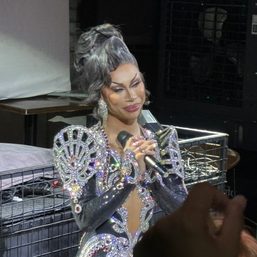
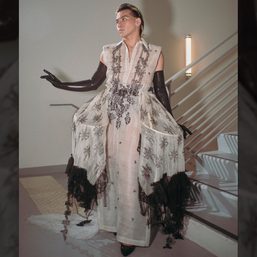
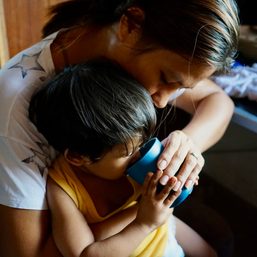


![[Rappler Investigates] Dangers of TikTok](https://www.rappler.com/tachyon/2024/04/dangers-tiktok-april-18-2024.jpg?resize=257%2C257&crop=309px%2C0px%2C1080px%2C1080px)

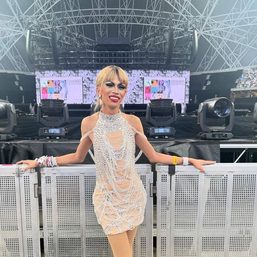
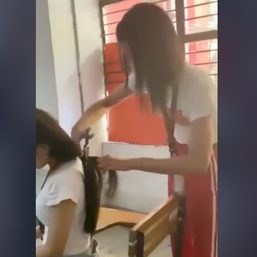
![[Dash of SAS] Pride, rainbow capitalism, and the resistance](https://www.rappler.com/tachyon/2023/07/Pride-and-Rainbow-Capitalism.jpg?resize=257%2C257&crop=300px%2C0px%2C720px%2C720px)
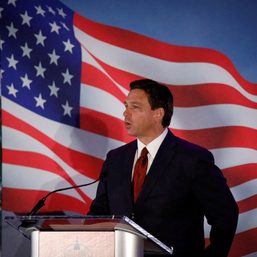
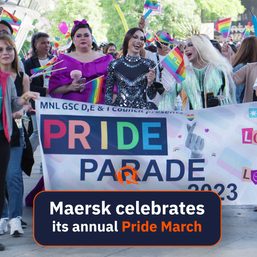


There are no comments yet. Add your comment to start the conversation.